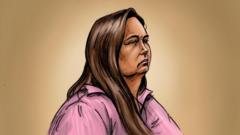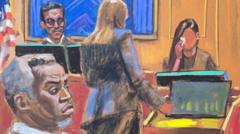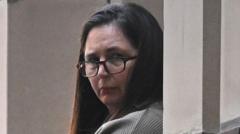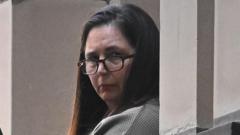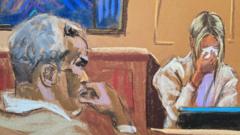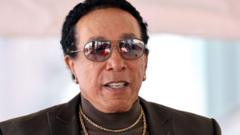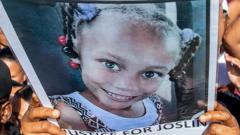The Menendez brothers are back in the spotlight as they seek to overturn life sentences for the murders of their parents in 1989 during a resentencing hearing in Los Angeles, igniting debates around justice, abuse, and redemption.
Menendez Brothers Seek Resentencing in Infamous Murder Case
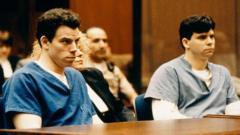
Menendez Brothers Seek Resentencing in Infamous Murder Case
Controversial hearing marks a potential step towards freedom for the convicted killers
In a courtroom filled with tension, Erik and Lyle Menendez, who have spent over three decades in prison, are facing a pivotal resentencing hearing that could reshape their futures. Convicted in 1996 for the shotgun murders of their parents, Kitty and Jose Menendez, the case remains one of America's most notorious criminal sagas. The brothers assert their actions were a desperate act of self-defense resulting from years of alleged abuse at the hands of their father, a prominent music executive. Prosecutors claim their calculated planning was rooted in greed for their parents' $14 million estate.
The hearing, taking place over two days, will not retrace the brothers' guilt but will scrutinize their behavior and rehabilitation during incarceration. Legal representatives for both sides intend to summon witnesses, including family members and prison officials, to provide testimony on the brothers' character and personal growth since their conviction.
A significant component of the courtroom debate centers around the emotional weight of testimonies from family members. While many stand firmly in favor of the brothers' release, others, like Milton Anderson, Kitty Menendez’s brother, vehemently oppose it, calling them "cold-blooded."
The Menendez brothers' quest for leniency gained momentum following new evidence presented this year. Implicating severe childhood trauma, the motion includes allegations of sexual abuse by their father, a claim underscored by a former band member’s testimony and a letter from Erik detailing this abuse. These developments arrive in the wake of renewed public interest spurred by a Netflix series depicting the notorious case, leading some to believe that contemporary perceptions of abuse might lead to a different judicial outcome if revisited.
Current Los Angeles District Attorney Nathan Hochman is opposing the resentencing initiative, asserting that the brothers have failed to show remorse or accountability for their actions. The resentence judge, Michael Jesic, is tasked with making a decision that may involve granting the brothers eligibility for parole but does not guarantee freedom. Depending on his ruling, the Menendez brothers may find themselves with decades more of incarceration or a chance at freedom via parole, contingent upon further assessments of their risk to society.
As discussions unfold in court, this landmark case underscores a broader societal debate on issues of domestic abuse, rehabilitation, and the complexities of justice, as the Menendez brothers continue to navigate a path toward potential release from their controversial life sentences.
The hearing, taking place over two days, will not retrace the brothers' guilt but will scrutinize their behavior and rehabilitation during incarceration. Legal representatives for both sides intend to summon witnesses, including family members and prison officials, to provide testimony on the brothers' character and personal growth since their conviction.
A significant component of the courtroom debate centers around the emotional weight of testimonies from family members. While many stand firmly in favor of the brothers' release, others, like Milton Anderson, Kitty Menendez’s brother, vehemently oppose it, calling them "cold-blooded."
The Menendez brothers' quest for leniency gained momentum following new evidence presented this year. Implicating severe childhood trauma, the motion includes allegations of sexual abuse by their father, a claim underscored by a former band member’s testimony and a letter from Erik detailing this abuse. These developments arrive in the wake of renewed public interest spurred by a Netflix series depicting the notorious case, leading some to believe that contemporary perceptions of abuse might lead to a different judicial outcome if revisited.
Current Los Angeles District Attorney Nathan Hochman is opposing the resentencing initiative, asserting that the brothers have failed to show remorse or accountability for their actions. The resentence judge, Michael Jesic, is tasked with making a decision that may involve granting the brothers eligibility for parole but does not guarantee freedom. Depending on his ruling, the Menendez brothers may find themselves with decades more of incarceration or a chance at freedom via parole, contingent upon further assessments of their risk to society.
As discussions unfold in court, this landmark case underscores a broader societal debate on issues of domestic abuse, rehabilitation, and the complexities of justice, as the Menendez brothers continue to navigate a path toward potential release from their controversial life sentences.


